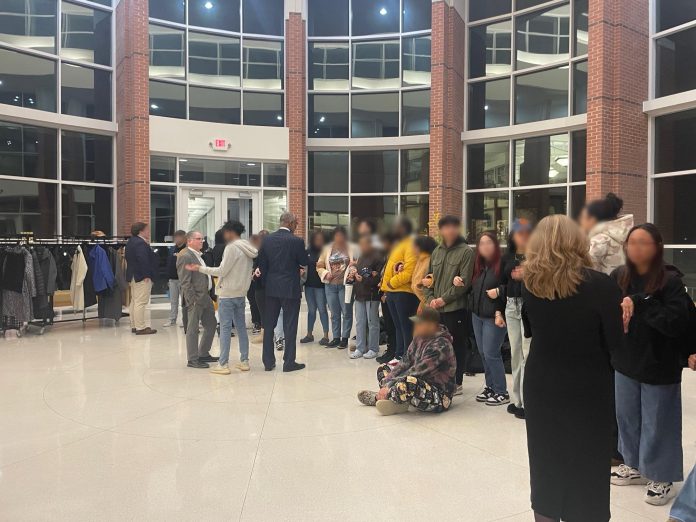
Administrators focus scholarship efforts on the Midwest; students adapt to program changes
The fall 2024 semester is the first to observe no influx of New York Posse students at DePauw. This follows a decision by the Board of Trustees in late spring 2023 to discontinue the New York Posse program to include more Midwestern Posse students in the DePauw community.
Earlier in the year, Posse students protested against the change to the program and expressed their dissatisfaction with the administration’s failure to communicate changes to students. In recent Posse meetings, Anthony Tillman, faculty liaison of the Posse program at DePauw, has been closely collaborating with students to work through these issues and build a stronger network.
Tillman believes that community is “not necessarily geographical,” and agrees that “there may be some who feel as though not having continuation of New York Posse is a disruption of community.” However, he doesn’t see the decision as a hindrance for uplifting new Posse cohorts.
Maya La Croix ‘25, a New York Posse scholar, believes that despite the frustration and sadness at the discontinuation of the New York program, students will “continue to build community through Posse (since) that’s kind of what (the) program is all about.”
At the beginning of the semester, Tillman said he had invited scholars to come together to discuss plans for the future of Posse, for which between 20 and 25 students joined. The output of this meeting was the idea for a Posse Scholar Leadership Council. Tillman believes this is a perfect alignment with the mantra of Posse at a national level – to provide universities with leaders.
Tillman hopes that the council can become a recognized student organization and a part of “the permanent fabric of DePauw University.”
La Croix believes the Posse Scholar Leadership Council will “offer (Posse students) a lot of opportunities to continue to strengthen ties to the DePauw community” and for students to have “less of a reason to doubt (their) credibility.”
While favor for a student council or student liaison increased after demands for student representation, Tillman claimed that “dissociation was already there prior to the decision made about the New York Posse program.” He said that he tried to organize monthly meetings to discuss the program, but interest waned over time.
Vice President of Academic Affairs Dave Berque added, “There is a theoretical desire to communicate more and then there are just practical constraints about how many people can actually show up.” He described it as an ebb and flow of availability and communication across associations at DePauw.
Following the decision to discontinue New York Posse, La Croix has also seen lower energy among students in pushing the administration about issues regarding Posse at DePauw. They believe a student council will enable involvement in student government and effective engagement with administrators.
New York Posse Scholar Elisha Amadasu ‘26 feels the formation of the Student Leadership Council is a sign of more active engagement from Tillman in efforts to further enrich the Posse community.
While Amadasu acknowledges the initial frustration during the discontinuation of the New York Posse Program, he appreciates the increased involvement and impact DePauw aims for in the Midwest. He wants the Posse community to ultimately be a place of mutual support and unity.


